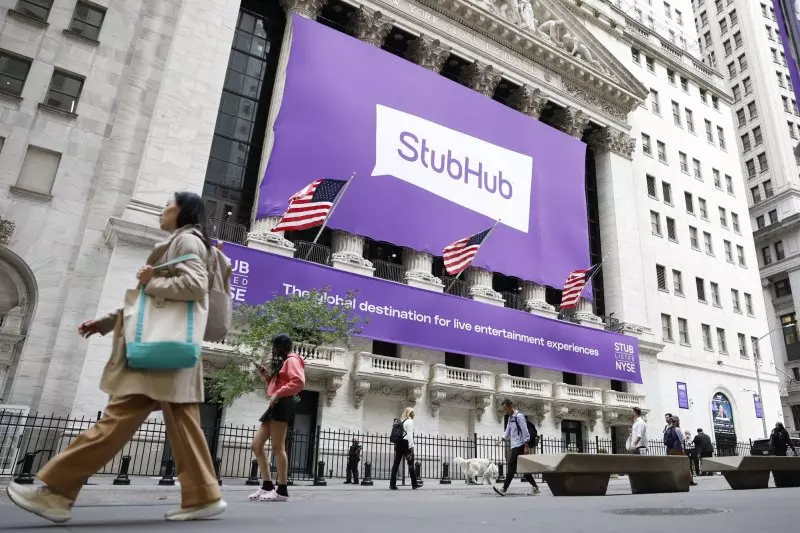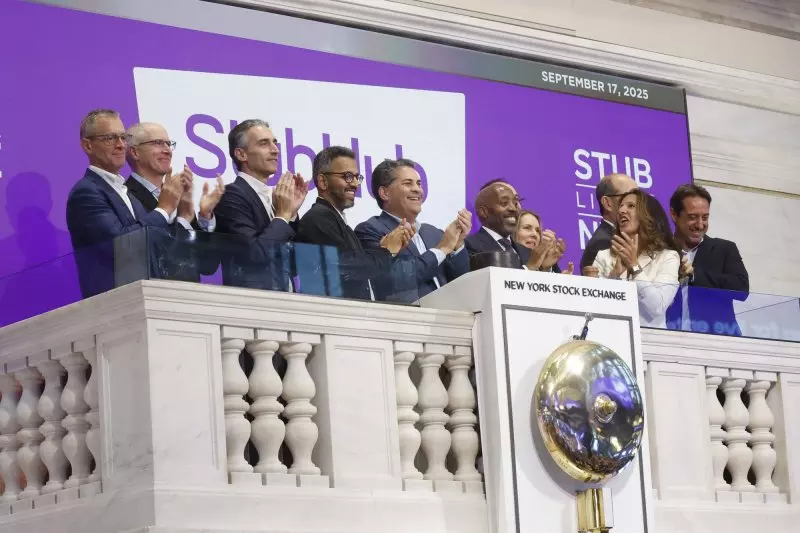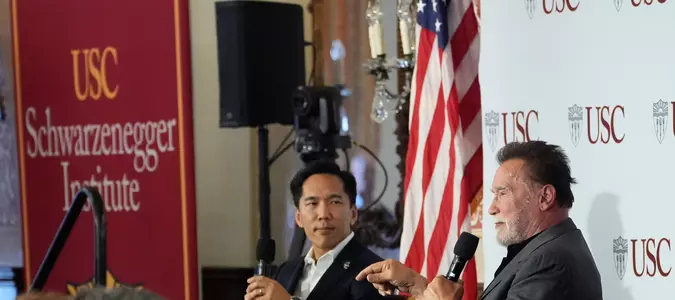

StubHub's debut on Wall Street sends shares to more than $25
The online ticket retailer StubHub on Wednesday hit the New York Stock Exchange for its first time.

On Wednesday, the StubHub logo hung on a banner at the entrance to the NYSE before the opening bell on the day of StubHub's IPO on the New York Stock Exchange in New York City. Photo by John Angelillo/UPI UPI Stock shares in StubHub's initial NYSE public offering opened at $25.35 per share under the ticker "STUB" pulled in about $800 in revenue for the 25-year-old company. Photo by John Angelillo/UPI UPI StubHub CEO Eric H. Baker (C) celebrated Wednesday in New York City on Wall Street as StubHub began trading under the NYSE ticker "STUB." Photo by John Angelillo/UPI UPI
Sept. 17 (UPI) -- The online ticket retailer StubHub on Wednesday hit the New York Stock Exchange for the first time.
Stock shares in StubHub's initial NYSE public offering opened at $25.35 per share under the ticker "STUB" and pulled in about $800 million in revenue for the 25-year-old company.
Its Wall Street debut had been put on hold after the initial wave of uncertainty surrounding the announcement of U.S. President Donald Trump's so-called "Liberation Day" and sweeping tariff policies, and joined Sweden-based "buy now, pay later" service Klarna in holding off its IPO until recently.
The company generates revenue primarily by connecting ticket resellers with online buyers and is a direct competitor to other companies such as Ticketmaster's Live Nation Entertainment, Vivid Seats and SeatGeek.
The company said in August that, last year, more than one million sellers sold over 40 million tickets on StubHub's platform.
Ebay in 2007 purchased Stubhub for about $310 million.
...

But StubHub was sold in 2019 to Switzerland-based ticket competitor Viagogo in a multi-billion dollar cash deal led in part by StubHub's co-founder and Viagogo CEO Eric Barker as Viagogo sought a stronger foothold in the U.S. market.
Last year in July the attorney general of the District of Columbia sued StubHub on allegations it tricked customers into hefty mandatory fees by withholding its cost until right before a buyer paid.
In May, the Federal Trade Commission issued StubHub a warning letter saying it must comply with its "junk fee" rule and alleged some of its listed tickets did not meet federal standards.

















